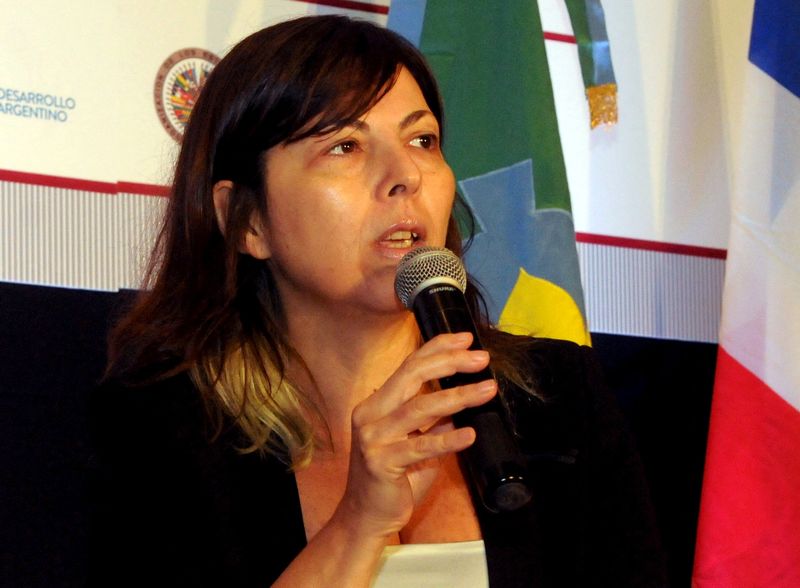By Jorge Otaola
BUENOS AIRES (Reuters) - Silvina Batakis arrives at Argentine's Ministry of Economy in full-blown crisis mode, with inflation above 60%, a high fiscal deficit, fears rising about debt defaults and savers losing faith in the peso currency and anticipating a devaluation.
The 53-year-old heterodox, or unorthodox, economist will likely bring a new style to the economy minister's role after moderate economist Martin Guzman abruptly resigned following clashes with the militant wing of the ruling coalition.
Batakis, born in the southern Tierra del Fuego region, was economy minister for Argentina's biggest and wealthiest province Buenos Aires between 2011 and 2015 under then governor Daniel Scioli, who is now the national production minister. In her last job, she was a senior official at the Interior Ministry.
The finance and economics graduate is more aligned with the ruling Peronist coalition's militant wing around powerful Vice President Cristina Fernandez de Kirchner, which had clashed openly with Guzman over his tighter fiscal policy.
That wing wants more public spending to help alleviate high poverty levels, despite targets in a new $44 billion deal with the International Monetary Fund (IMF) to bring down the fiscal deficit, increase reserves and lower central bank financing.
Batakis is more likely to respond to the militant wing than Guzman.
"There is no dignified poverty," she wrote in a pinned post on her Twitter (NYSE:TWTR) account. "It is just poverty, and we must fight it. It is fought with a state that plans and intervenes, and with a society that imposes it as a social goal."
The new minister received a degree in economics from Argentina's National University of La Plata in 1993 and a master's degree in public finance. She also holds a masters degree in environmental economics from the University of York, UK.
Scioli said on Twitter that Batakis was "a person of great human quality and extensive professional training. A tireless worker with a great sense of responsibility and great experience."
She will need it. Investors are increasingly concerned that Argentina will not be able to meet its debt commitments amid high energy import costs that are soaking up foreign currency reserves and inflation linked to soaring global prices.
Tight currency controls have stoked popular alternative foreign exchange markets to buy dollars, where people are willing to pay twice the official rate to get greenbacks, a trend which distorts trade prices and fans inflation.
Argentina has targets agreed with the IMF as part of a 30-month program and needs to renegotiate a $2 billion debt deal with the Paris Club group of sovereign lenders. Guzman had been expected to travel to France for talks this week.

Matias Carugati, an economist from Consultora Seido, said on Twitter that President Alberto Fernandez had appeared to cede control of the economy to his vice president's wing although Batakis still needed to lay out her policy vision.
"Now we have a minister, but we do not yet have an economic plan," he said.